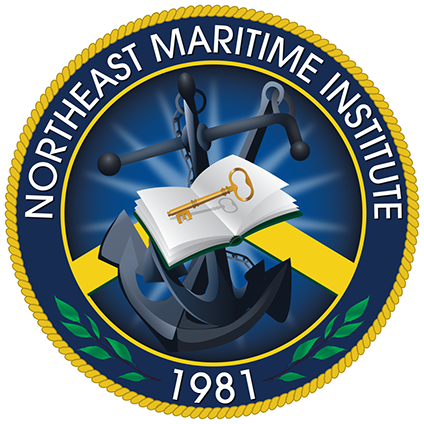Dr. Cindy Lee Van Dover | Explorer – the first female pilot for deep-sea submersible Alvin
Dr. Cindy Lee Van Dover is a prominent leader for women in marine biology, specifically in deep-sea biology and exploration. In 1982, she dove for the first time in the human-occupied vehicle (HOV) Alvin during a biological research expedition to hydrothermal vents on the East Pacific Rise.
Van Dover became an Alvin pilot in 1990, eventually making 48 dives as pilot-in-command of Alvin and participating in over 100 such dives in total.
During these expeditions, Van Dover discovered new species of mussels, shrimp, tube worms, and bacteria. Her work with Alvin and other deep-submergence assets has taken her to many of the known vent fields in the Atlantic and Pacific, as well as to deep-water seamounts, seeps, and other significant seafloor features.

“I am not a complacent person. I don’t like to think that I might be ordinary. Yet I think I am very ordinary and so continually pursue the exceptional.”
– Dr. Cindy Lee Van Dover, American Museum of Natural History
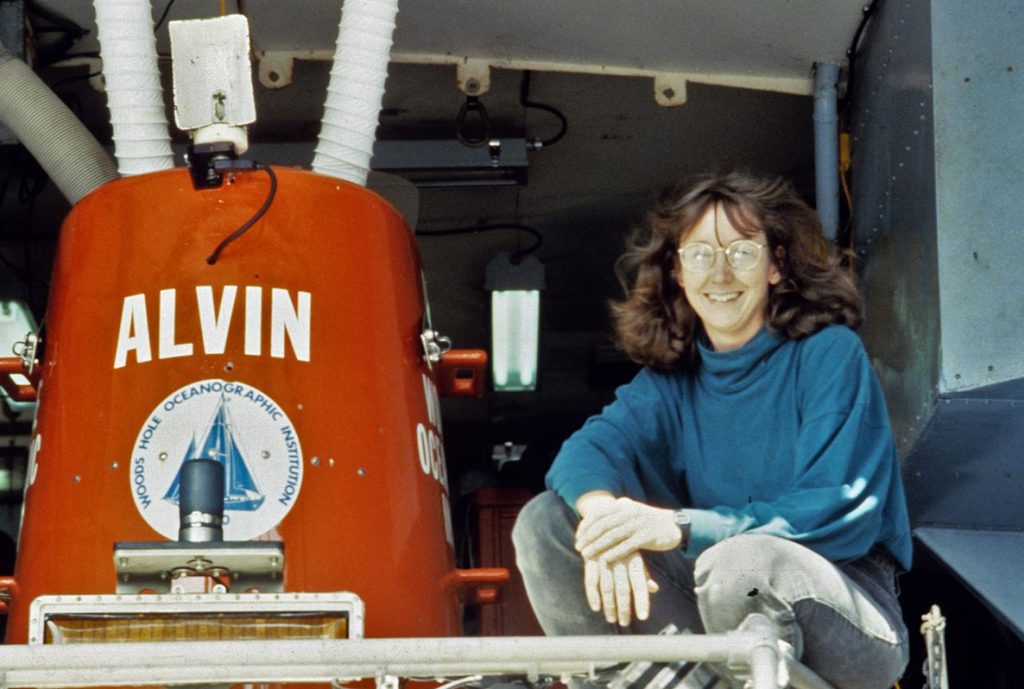
“I am not a complacent person. I don’t like to think that I might be ordinary. Yet I think I am very ordinary and so continually pursue the exceptional.”
– Dr. Cindy Lee Van Dover, American Museum of Natural History
At Woods Hole Oceanographic Institution (WHOI), the number of women increased in the 1960s. However, one of the last sectors to admit women at WHOI was the HOV Alvin. In 1971, Ruth Turner became the first female scientist allowed to dive in Alvin, but it wasn’t until decades later that Cindy Van Dover became the first female pilot of Alvin.
When asked about her advice for young women interested in a career in science in an interview with the American Museum of Natural History, Van Dover emphasized that she makes no distinction between making a discovery as a scientist or as a woman scientist. She prefers that others do not single her out for recognition because of her gender, and she gives the same advice to young women as she would to young men.
“I make no distinction between making a discovery as a scientist or as a woman scientist, and prefer that others do not single me out for recognition because I am female. I don’t make distinctions in giving advice to young women who are interested in a career in science; I give the same advice to them as I would to a young man.”
– Dr. Cindy Lee Van Dover, American Museum of Natural History
Van Dover advises aspiring scientists to seek opportunity, do their homework, know something about what they want to do, find out who does it well, and seek advice. Her journey involved some rejections, but she persevered to achieve her goals.
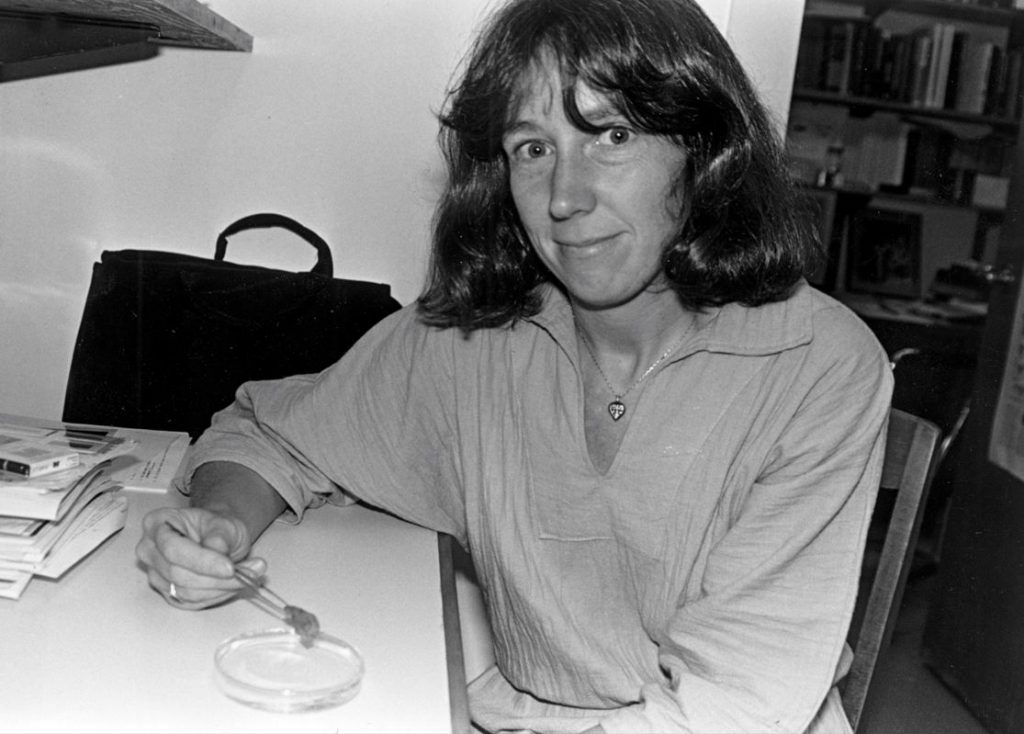
“My parents were very influential, instilling a strong work ethic. My mom taught me to love nature; my dad taught me to love technology. Professors in college and graduate school had a great deal of influence on me as an individual and a scientist; the tempo and tenor of my work aspire to meet theirs.”
– Dr. Cindy Lee Van Dover, American Museum of Natural History

“My parents were very influential, instilling a strong work ethic. My mom taught me to love nature; my dad taught me to love technology. Professors in college and graduate school had a great deal of influence on me as an individual and a scientist; the tempo and tenor of my work aspire to meet theirs.”
– Dr. Cindy Lee Van Dover, American Museum of Natural History
Van Dover is the Harvey Smith Professor of Biological Oceanography and chair of the Division of Marine Science and Conservation at Duke University. She is also the director of the Duke University Marine Laboratory, making her the first woman in that position. Her primary area of research is oceanography, but she also studies biodiversity, biogeochemistry, conservation biology, ecology, and marine science.
In addition to research and policy development, Van Dover authored a popular book for the lay audience about the deep sea and her experiences as an Alvin pilot (Deep-Ocean Journeys; Addison-Wesley, 1997, a.k.a. The Octopus’s Garden). She is the author of the first textbook on hydrothermal vents (The Ecology of Deep-Sea Hydrothermal Vents; Princeton University Press, 2000); she is the curator of ‘Beyond the Edge of the Sea,’ a traveling exhibition of original deep-sea art by watercolor artist Karen Jacobsen; and she is helping to develop Art and Science: Envisioning Ocean Depths, a mixed media exhibition. Van Dover has published over 90 academic papers, in addition to policy briefs, encyclopedia entries, and extended abstracts.
Van Dover’s dedication to deep-sea biology, particularly in ocean exploration and the ecology of chemosynthetic ecosystems, has earned her several awards and grants. She attributes her work ethic to her parents and her love for nature and technology to her mom and dad, respectively. She also credits her professors in college and graduate school for having a great influence on her as an individual and a scientist.

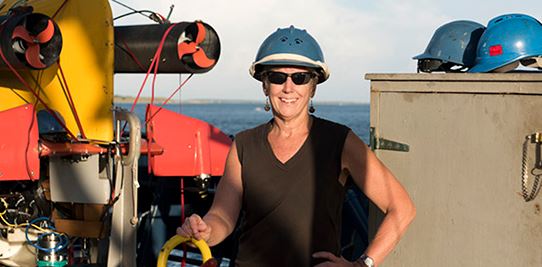
Sources
Are you ready to grow and expand your maritime knowledge? Northeast Maritime Institute is providing professional development opportunities to maritime industry professionals through the delivery of FREE courses on Northeast Maritime Online (NEMO°)! Our newest addition, Maritime Cybersecurity Essentials, expands the suite of free course offerings which currently includes Vessel Traffic Service (VTS) Essentials and Handheld VHF Radio Essentials.
As a leading provider of online STCW training, NEMO° recognizes the need for access to training opportunities across the entire maritime industry for both onshore and onboard personnel. Introducing essential theorem and practical applications, NEMO°’s professional development courses offer so much more than memorization of concepts. For example, the Handheld VHF Radio Essentials features a fully functional online VHF simulator, and the comprehensive VTS Essentials course was built by one of the world’s leading VTS expert, Jillian Carson-Jackson.
Maritime professionals all across the globe can use these courses to expand their knowledge and understanding of important maritime concepts. Upon course completion, you will receive a NEMO° Course Badge and certificate. Become a part of the NEMO° family today by taking one of our exciting FREE professional development courses.



